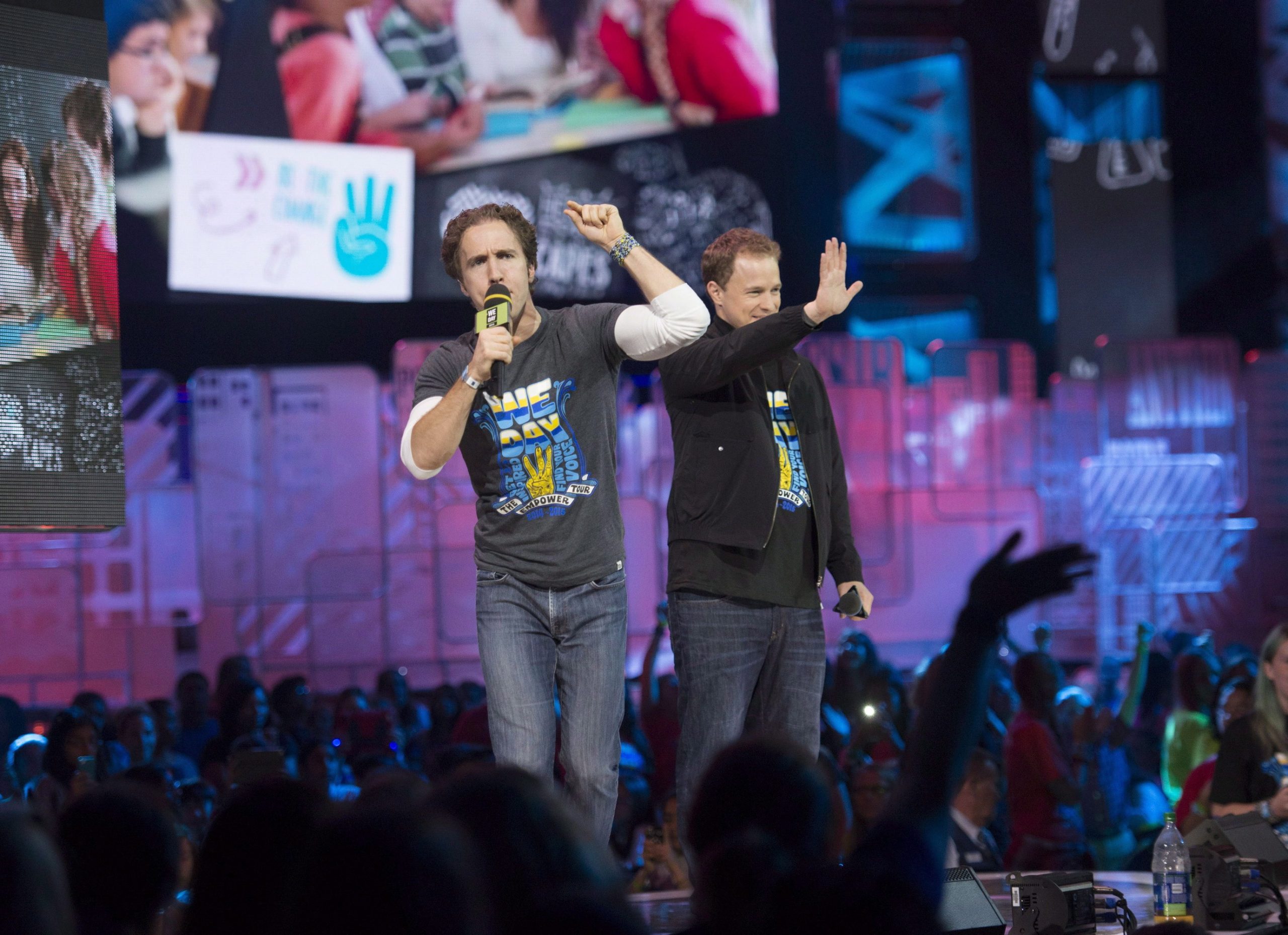OTTAWA — The co-founders of WE Charity say their organization was selected to run a student-volunteer program because of their history, not because of any close ties to Liberal cabinet ministers.
Appearing before the House of Commons finance committee today, brothers Craig and Marc Kielburger say they regret not realizing how the deal to have WE run the Canada Student Service Grant would be perceived.
In their opening statement, the brothers say they would have never agreed to take part in a federal student-volunteer program had they known it could jeopardize the work the WE organization has done over 25 years.
The duo are scheduled to speak for four hours at the committee today as part of a parliamentary probe into a $912-million that federal officials believed would cost $543 million — and that WE believed would actually cost even less.
WE Charity backed out of administering the program in early July amid a controversy over the Liberal government’s decision to award the organization a sole-sourced contract despite its close ties to Prime Minister Justin Trudeau.
Trudeau and his top aide, chief of staff Katie Telford, are to testify Thursday about the program and the deal with WE.
The Kielburgers say they haven’t spoken with Trudeau or the Prime Minister’s Office about the program.
The federal ethics commissioner has launched probes of Trudeau and Finance Minister Bill Morneau over their involvement in cabinet decisions despite WE’s having paid Trudeau’s family members speaking fees, and Morneau’s familial ties to the group.
Further compounding problems for the finance minister was his admission last week that he had just repaid the organization more than $41,000 in travel expenses for WE-sponsored trips he and his family took three years ago.
Opposition MPs have raised multiple questions about the due diligence conducted on the organization, arguing that testimony to date suggests the group had the inside track on the contract to run the program.
The program is supposed to provide grants of $1,000 for every 100 hours of volunteering, up to a maximum of $5,000 as part of a government aid program to help defray the cost of school in the fall.
WE was to administer the program and connect young people with service opportunities through an online platform that would have also paid WE a fee worth $43.5 million if the program reached its maximum potential.
The Kielburgers say there was no financial benefit for the charity.
A copy of the agreement filed with the committee this week noted that the federal government only planned to spend $500 million in grants, even though the Liberals touted the program as having a $912-million budget.
A spokesperson for Employment and Social Development Canada, the federal department overseeing the program, says the $543 million was what officials estimated it would cost to administer and pay grants to up to 100,000 eligible students or recent graduates — “the expected uptake of the program.”
“If demand exceeded the number of grants funded in original (agreement), additional funding would have still been available for the program,” spokesman Michael O’Shaughnessy said.
During testimony, Marc Kielburger said WE expected few students to actually reach the maximum grant level, with the majority volunteering between 100 and 300 hours.
He said WE estimated the true cost of the program to be between $200 million and $300 million — or roughly one-third of what the government said when Trudeau announced the program.
WE was paid its first fees of $19.5 million on June 30 — seven days after one of its arms, WE Charity Foundation, signed the federal deal on June 23.
Former board chair Michelle Douglas said the foundation didn’t appear to have a purpose outside of holding real estate, nor did the board receive a satisfactory explanation for its existence. She added that she wasn’t aware of it operating during her time on the board.
Three days later, the organization backed out of the agreement. It has promised to repay every dollar it received, about $30 million, but was still sorting that out details.
At the time, WE said a structure was largely in place for the federal public service to manage. In their opening statement, the brothers say there had been 35,000 applications and 24,000 placements. They say WE handed everything to the public service “hoping to save the program.”
However, problems have emerged with what WE put in place and the government has yet to announce a timeline to let students access the program.
This report by The Canadian Press was first published July 28, 2020.
The Canadian Press













